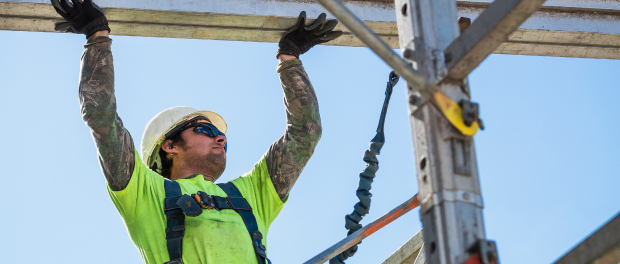Helping neurodiverse workers thrive

Do you know how many of your team are neurodiverse? IOSH estimates the global proportion is around 15-20%. So there’s a good chance there’s more neurodiversity in your team than you think. But do you have a culture of inclusion where people are comfortable talking about it?
According to an online poll, done in late 2023, 70% of neurodiverse people said they hadn’t told their current employer about their condition. Meanwhile, 50% of people said they wouldn’t declare it on a job application.
“Bosses must demonstrate their commitment to building positive cultures which enable neurodiverse colleagues to openly discuss their needs.”
The call has come from the Institution of Occupational Safety and Health (IOSH) in a white paper and follows survey findings which highlight how people are unwilling to speak about neurodiversity at work.
Read the full white paper here>
Common forms of neurodiversity
- Attention Deficit Hyperactivity Disorder (ADHD)
People with ADHD may find it difficult to channel their attention (inattention), making it hard to maintain focus on a single task. Alternatively, they may have an excess of internal energy (hyperactivity), which causes them to be restless and to act on impulse. Some people experience both inattention and hyperactivity, known as combined ADHD. - Autism spectrum disorder (ASD)
People on the autistic spectrum may have difficulty interpreting verbal and non-verbal language including gestures or tone of voice. They may experience oversensitivity or under-sensitivity to sensual stimuli including sound, touch, light and colour. They may be most comfortable with established routines and sensitive to disruptions. - Dyslexia
Individuals with dyslexia may find it difficult to read text, to write and to spell words correctly. - Dyscalculia
People with dyscalculia may find it hard to understand numbers or perform mathematical calculations. - Obsessive-compulsive disorder (OCD)
People with OCD experience frequent intrusive and unwelcome obsessional thoughts and may feel the need to carry out repetitive behaviours or rituals to prevent perceived harm and/or fears that stem from the thoughts.
Adding value
IOSH believes neurodiverse people add value to workplaces but is concerned that not enough is being done to encourage people to be open about conditions they have.
Their white paper called ‘Divergent thinking: embracing neurodiversity at work’ was published during the global Neurodiversity Celebration Week . In the paper, IOSH says building a positive organisational culture in which diverse employees thrive and are encouraged to share details of their needs goes well beyond just having policies and training and making individual adjustments wherever feasible, although those are all important building blocks.
IOSH goes on to say that organisations must also think of ways to show to all employees its commitment, including:
- leaders openly discussing their own experiences of neurodiversity
- encouraging the setting up of neurodiverse groups or networks, and
- ensuring there is a neurodiversity section in diversity and inclusion policies.
The paper calls for line managers to be trained to help them recognise and control unconscious bias and assumptions about individual capacity or behaviour. There is also a call on businesses to ensure they cater for individual needs rather than a blanket approach.
“Our report highlights the importance of businesses encouraging positive cultures where people can openly discuss their needs.”
Stuart Hughes, IOSH President
IOSH can help
As the World’s only chartered body for OSH, IOSH can help you create an OSH strategy that understands neurodiversity and encourages people to feel more comfortable in talking about it.
Good occupational safety and health makes good business sense at board, manager and worker levels. IOSH for Business helps construction organisations of every size with occupational safety and health strategies – with an emphasis on putting people at the heart of a business, including your neurodiverse colleagues.

